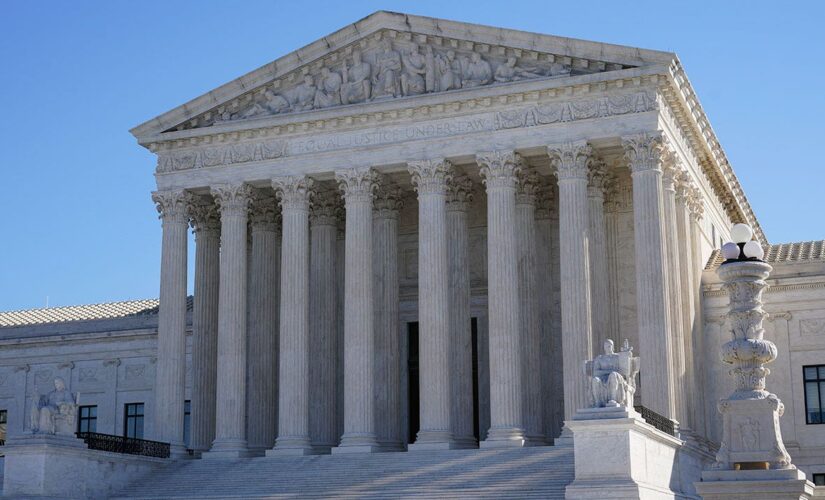A group of New Jersey fisherman has asked the Supreme Court to take up their lawsuit to overturn a federal fishing regulation, and possibly end a nearly four-decade precedent, that they say is excessive and gives too much deference to federal agencies to make up rules that haven’t been approved by Congress.
Paul Clement, who served as U.S. solicitor general from 2004 to 2008 and has argued more than 100 cases before the Supreme Court, filed a petition on behalf of the fishermen on Thursday.
At the heart of the fishermen’s argument is a regulation issued by the National Oceanic and Atmospheric Administration (NOAA) that requires fishermen to pay up to $700 per day to fund the salary of a contractor who monitors their boat to ensure compliance with environmental rules. Lower courts have rejected arguments that the rule goes too far by leaning on the Supreme Court precedent set in Chevron U.S.A., Inc. v. Natural Resources Defense Council, Inc.
That decision said that when interpreting federal rules, courts should show deference to those rules as long as they are not unreasonable and when they deal with ambiguity in the law.
Supreme Court of the United States
(AP Photo/Patrick Semansky)
But Clement says it’s long past time to end what has come to be known as the “Chevron deference,” as courts have cited this concept as a reason to stop any meaningful review of federal rules. While the doctrine is theoretically sound, Clement said in his filing that in practice “Chevron has been a disaster.”
“Lower courts see ambiguity everywhere and have abdicated the core judicial responsibility of statutory construction to executive-branch agencies,” he wrote.
In the case of the New Jersey fishermen, Clement said lower courts provided no meaningful review of the NOAA rule that requires them to personally pay for environmental monitors on their fishing boats. He said the law written by Congress does hold that in some cases vessels must pay the salaries of environmental observers on board, but he said that requirement is not specifically called for in the case of the New Jersey fishermen.
Nonetheless, NOAA has broadened out that requirement beyond the limited scope agreed to by Congress, and courts have cited Chevron as a basis for keeping the rule in place. Clement said it’s time for the Supreme Court to consider overruling Chevron, or at least temper the precedent that it set decades ago.
SUPREME COURT DEBATES FEDERAL LAW DEALING WITH ADOPTIONS FOR NATIVE AMERICAN CHILDREN
The Supreme Court
(AP Photo/Jacquelyn Martin)
“It is the duty of the judiciary to step in when any branch of government has abused its power,” Clement said. “This case is about correcting one such abuse and reining in executive overreach that threatens the livelihoods of fishing families and the constitutional balance of power.”
The application of the Chevron deference has been challenged by several members of the Supreme Court.Justice Neil Gorsuch most recently cast doubt on Chevron in a Monday dissent on a decision to reject a case that regarded rules at the Department of Veteran Affairs.
“Neither the Court of Appeals for Veterans Claims nor the Federal Circuit offered a definitive and independent interpretation of the law Congress wrote,” Gorsuch wrote. “Instead, both courts simply deferred to the agency’s regulations as ‘reasonable’ ones and said this Court’s decision in Chevron required them to do so. That kind of judicial abdication disserves both our veterans and the law.”
Justice Samuel Alito and Chief Justice John Roberts criticized the way the Chevron deference is applied in a 2013 decision about the Federal Communications Commission. The justices wrote that the “rise of the modern administrative state” does not alter their obligation to interpret the law as it is.
AFFIRMATIVE ACTION CASE: JUSTICES WERE ‘ON FIRE’ OVER HARVARD’S ACTIONS, SAYS ACTIVIST IN HEARING
Supreme Court Chief Justice John Roberts
(Julia Nikhinson-Pool/Getty Images)
CLICK HERE TO GET THE FOX NEWS APP
Ryan Mulvey, a counsel at the Cause of Action Institute, which provides legal service to the New Jersey fishermen in the case, said NOAA did not grant the power to outsource the cost of fishing monitors to the fishermen themselves, and he supported the push for a Supreme Court review.
“It is time for the Supreme Court to do away with Chevron and return lawmaking to its rightful place in Congress and statutory interpretation to its rightful place: the judiciary, not the executive branch,” Mulvey said.




